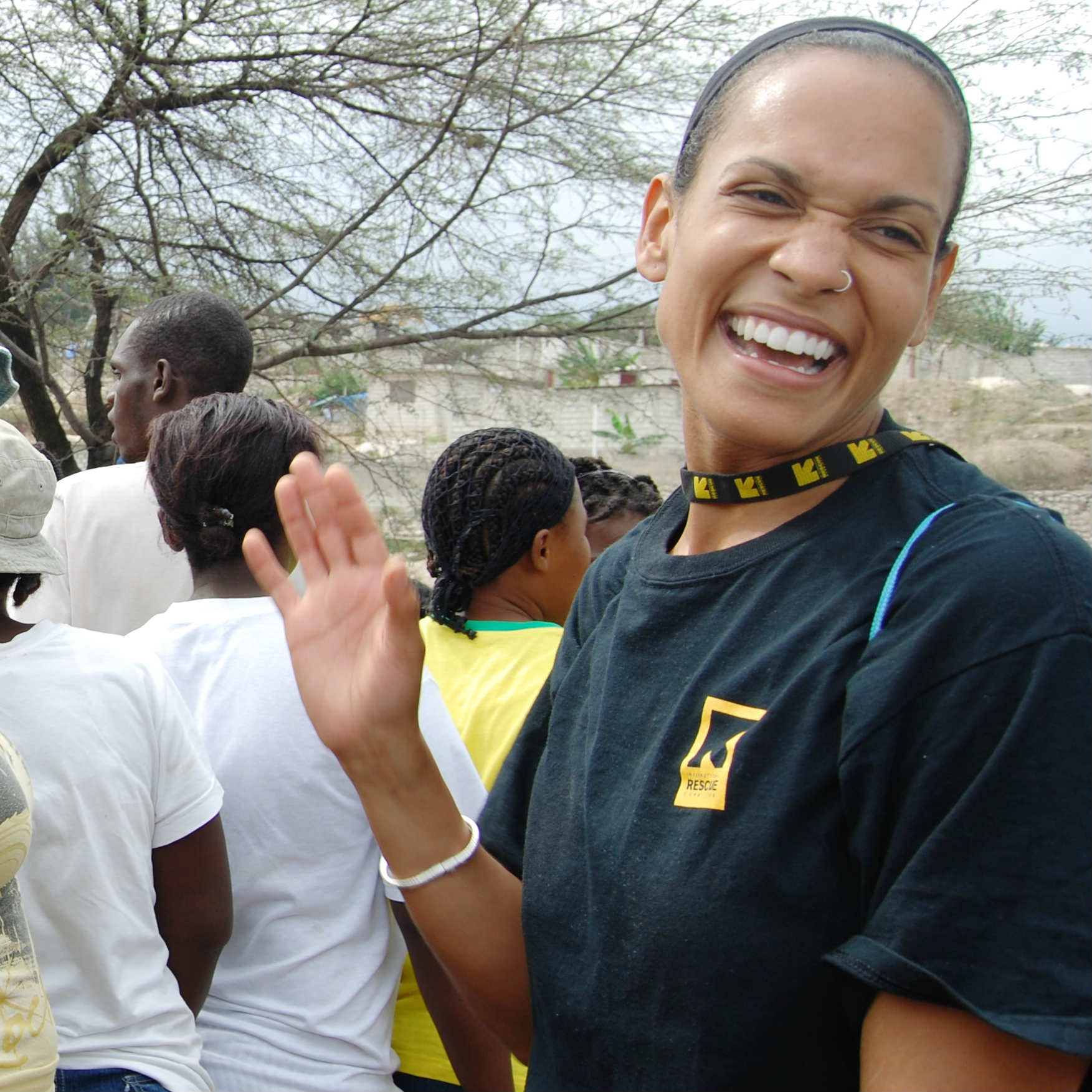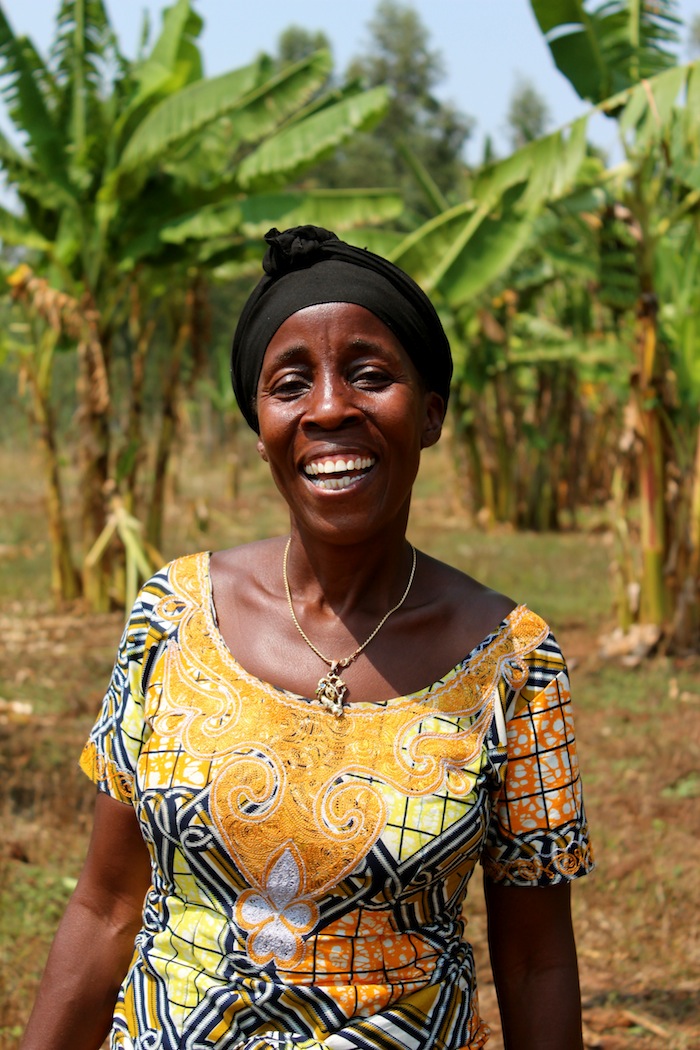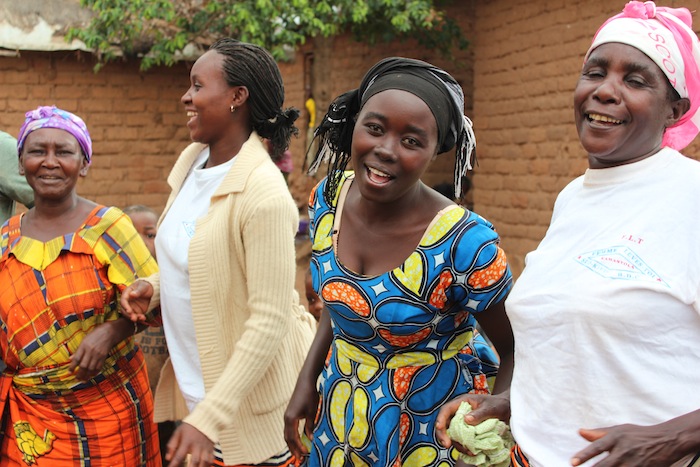
By Aisha Bain, the IRC's women's protection and empowerment advocacy advisor for Congo
I lived in the eastern Democratic Republic of Congo in 2008 and 2009, a challenging time rocked by earthquake and war. Almost every Congolese person I've talked to in North and South Kivu has a story about fear, pain and suffering. But I saw, experienced and lived much more than that. The people of this nation shared with me transcendent moments of resilience and triumph. This is the Congo everyone should know, the one characterized by the resourcefulness and hope of a strong people with endless potential.
My project with the International Rescue Committee (IRC) has given me the opportunity to do just this -- act as a megaphone to spread the stories of these determined Congolese. In 2012, I returned to Congo as part of the IRC's project to advocate for effective change and transformation in the lives of women and girls.
The women in Congo have always been the backbone of the country, performing most of the labor necessary to keep families and communities together. Yet traditionally they have not been granted a voice in the management of their households, nor allowed to hold respected positions in the community. They had no say over the resources they brought home, no say in decision making and, in many cases, no say over their own bodies. Today, though the process may be slow and sporadic, things are changing.
It is an unexpectedly cool September day after the rains, and I am heading to a village south of Bukavu near the border with Rwanda. We are visiting Femmes Lèves-Toi, French for "Women, Rise Up," a group of dynamic women who share their pain and their joy without reservation, and support and encourage one another. As we approach the collection of mud-brick houses, my IRC colleagues inform me that the region has known great violence and is considered a barometer for security issues.
When we find the house we are searching for, I grab my notebook, pen and camera and climb down from the Land Rover. When I enter the small structure, I find 30 women squeezed together staring up at me with big eyes and even bigger curiosity .
My 6'2" frame fills the doorway as I let out a big friendly, "JAMBO SANA!" in greeting, blowing through 50 percent of my Swahili with two words.
"JAMBO!" the women laugh back.
"HABARI?" I ask them with a huge smile.
"MZURI!" they laugh again.
Perfect -- they're good, I'm good. I take a few extra minutes to greet everyone individually by shaking hands, using my right hand, with my left loosely grasping my elbow, out of respect.
I sit down and listen as Fatuma, the president of their organization, begins to speak. Also quite tall, with an oval face, long nose and easy smile, she appears tired, but summons more than enough energy to engage her audience.
"We are Femmes Lèves-Toi," she says, speaking to me. "Our name means that women rise up with force to develop themselves and their communities. We created this organization in 2004 to fight challenges women face, to respond to the different needs women have, and specially to address the violence woman face. We were very affected by the wars and conflicts in this area. But if we came together at all, it was to see how to work together to help women, to help ourselves."

Fatuma, the president of Femmes Lèves-Toi
The IRC began working with Femmes Lèves-Toi to help survivors of violence obtain medical attention and counseling. Together, this partnership grew to help organize cooperatives to raise animals and crops, to support various income-generating activities, to manage microcredit and lending programs, to facilitate adult literacy, and to advocate for social change and women's equality.
"The IRC gave us training and support, and we have worked with local leaders to advocate for women's rights, such as the right to inheritance," Fatuma continues. "It was a big problem. If a women's husband died, she had to remarry someone in his family, or any man in the community for that matter, to maintain access to her house, to her piece of land, to her stock of animals -- to any means of survival. Now that is changing."
The president points to an older woman in the back of the room, who stands up and smiles. "This organization helped me find my life again," she says. "I had lots of problems to guard my land as a widow, but now I have a place in my family because these women helped me talk to my family and gain my rights."
A middle-aged woman dressed in African cloth printed with the colors of the Congolese flag rises to speak. "I gained access to credit and now I can pay for my children's schooling," she says. "I can support the needs of my family, and I feel integrated in my community."
"Before, survivors of violence could not come forward -- they hid in shame and fear, never getting help or support," says a third woman. "Now they come to us because they know they can get help, they know they don't have to be alone, and they know the community will not kick them out as before."

Members of the women's collective Femmes Lèves-Toi
I'm captivated by the change they've helped create in their community. We hear so much about the problems in the Congo, but we hear very little about the solutions, or what the Congolese are doing to help themselves and each other.
The president beams. "Before women were not allowed to come to village meetings, or even to gather at weddings. But look at us now," she says. "We work, we teach, we help others. We bring home money for food, medical care and school. We provide tin roofing to replace the dried banana leaves that covered our houses. We mobilize the community to help build canals to bring clean water. We are a force."
Back in Bukavu, my IRC colleague Julie asks me about of my visit. "Inspiring," I tell her. "Truly."
"We are glad you are here to tell these stories," Julie says. "We are poor, but we are not miserable. Our children are our riches. We create life, and they create joy. And for that, we will keep on fighting to build."
You can support the IRC's work around the world by making a donation through our RaiseForWomen Challenge page.